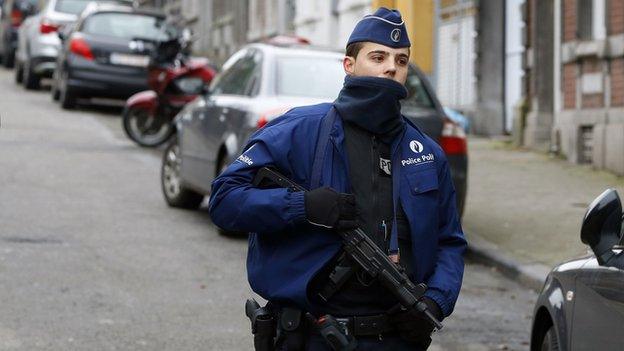Paris attacks: The Belgian connection
- Published
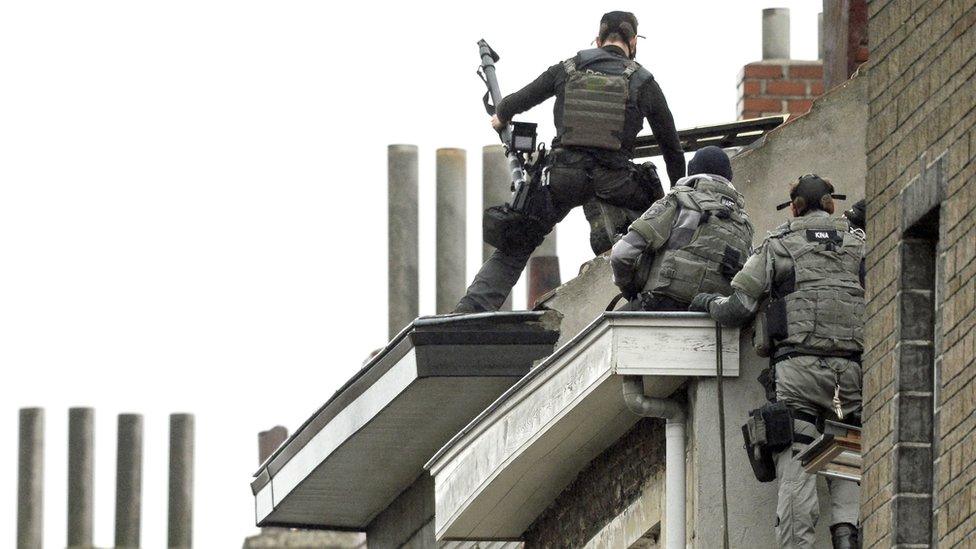
Belgian special forces raided a house in Molenbeek in their search for one of the Paris attackers
From the moment the Paris attacks investigation began, it was clear that Belgium was central to the story and the Brussels area of Molenbeek its focal point.
Salah Abdeslam, 26, was stopped on the border as he fled France with two other men but not detained.
Now Belgian fighter Abdelhamid Abaaoud, based in Syria, is being described as the brains behind the attacks.
If the co-ordinated plot was hatched in Syria, then it was prepared in Belgium and at least some of the attackers emanated from there. Two cars used in the plot were hired in the Brussels area.
Salah Abdeslam and his brother Brahim, who blew himself up on Friday, were both from Brussels. Another suicide bomber, Frenchman Bilal Hadfi, had also been living in Belgium.
More Belgians have gone to fight for the militant Islamic State (IS) group than any other European country, per capita. And there have been several attacks in recent months involving a Belgian connection.

Islamists in Belgium
Jewish Museum, Brussels, May 2014: Mehdi Nemmouche, a Frenchman from just over the border in Roubaix, accused of murdering four people
Paris attacks, 7-9 January 2015: Gunman Ahmed Coulibaly is thought to have gone to Brussels to buy the rocket-launchers and guns used to kill 17 people
Verviers raid, 16 January 2015: Two men killed in police raid in eastern Belgian town, amid reports of plot to attack Belgian police. Abdelhamid Abaaoud described as mastermind of planned attack
Thalys thwarted train attack, 21 August 2015: Suspect Ayoub El Khazzani said to have stayed at sister's house in Molenbeek before attack on high-speed train travelling from Amsterdam to Paris via Brussels
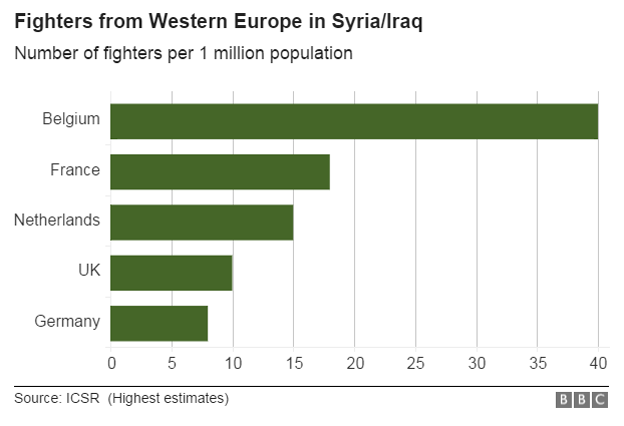

The trend began five years ago with the rise of Sharia4Belgium, which has since been disbanded with its leaders sent to jail.
Some 500 young Belgians signed up for jihad, according to a recent UN report, which said 207 were currently in Syria and 128 had returned.
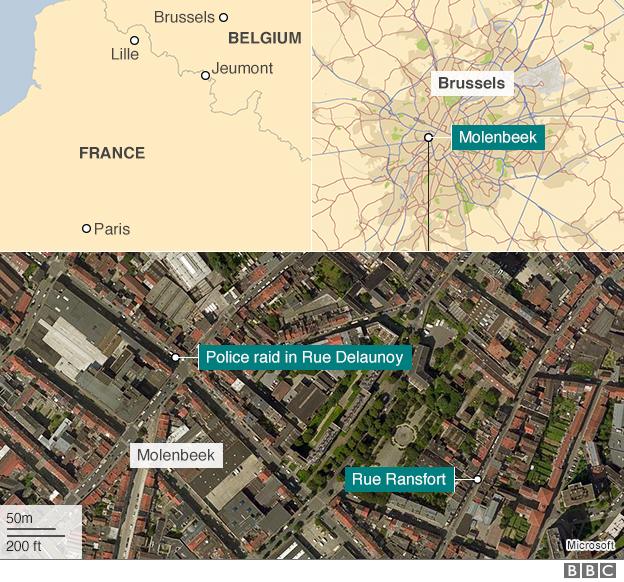
Most Belgian Islamists are of Moroccan origin, according to journalist Guy van Vlierden.
And Molenbeek, a western district of Brussels, has a large ethnic Moroccan population and has been dubbed a hub for jihadists. Its poverty, social exclusion, high rate of unemployment and weak political leadership have been highlighted as problems, too.
"We're going to clean up Molenbeek," promised Interior Minister Jan Jambon as police raided a house in Rue Delaunoy, searching for Salah Abdeslam.
Others have pointed to poor information-sharing among police and intelligence services. Brussels itself has six police zones and 19 mayors. "There should be one police zone," says Brussels regional minister Pascal Smet. "The city's organisation is weak."
But Belgium's security problem stretches beyond Molenbeek.
Sharia4Belgium originated in Antwerp.
More than 20 jihadists have gone to Syria from the northern suburb of Vilvoorde, just outside Brussels. And there is a well-established illegal arms market in the capital, where guns and rocket-launchers can be picked up relatively cheaply.
A terror cell was broken up in the eastern town Verviers outside Liege, a week after the initial Paris attacks. That cell was said to have been run by Abdelhamid Abaaoud.
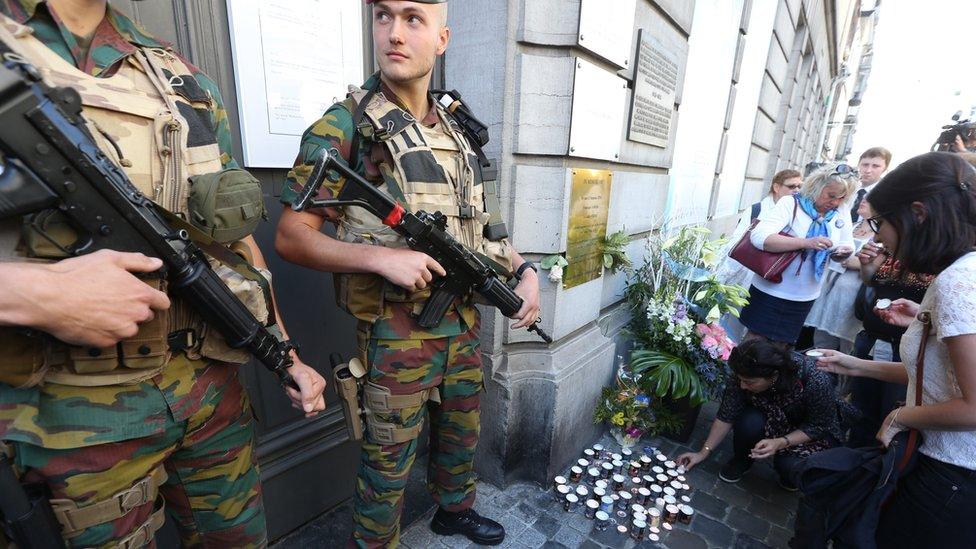
Security has been stepped up in Brussels since the 2014 attack on the Jewish Museum
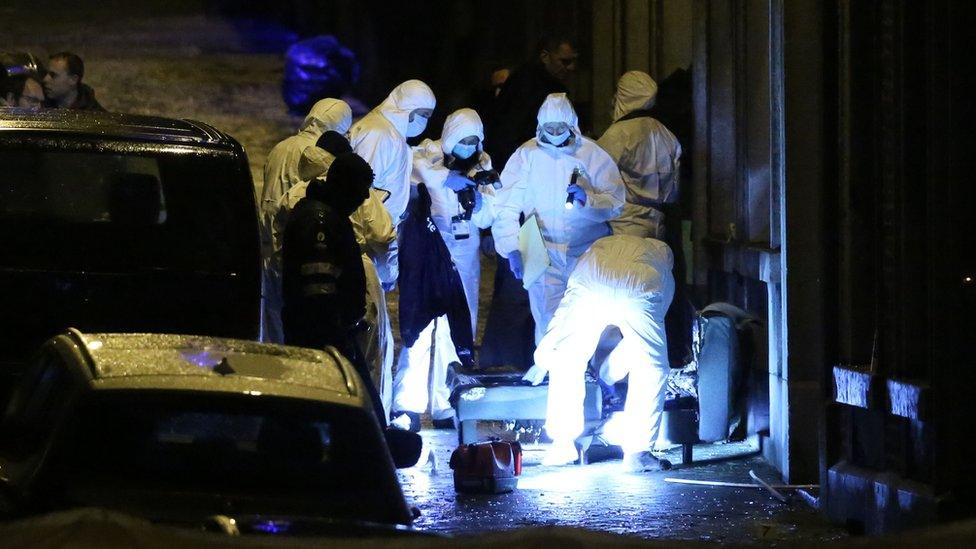
Two men were killed in a counter-terror operation in Verviers in January
'Clear danger'
Part of the problem has been the ease with which potential attackers can cross from Belgium to France and back. The cross-border connection was underlined by a raid by French police raid early on Monday in the town of Jeumont, just over the border from Belgium.
Denis Ducarme, a politician who has spent the past decade trying to reform Belgium's approach to jihadism, acknowledges there have been failings across the board. "The risk, the threat, the danger clearly exists in Belgium," he told the BBC.
But he believes that the government has for the past year made significant progress in tackling the Islamist threat. Passports and identity cards have been seized, efforts are under way to tackle radicalisation in Belgium's prisons and he is putting forward a plan to intercept phone conversations.
Belgium's interior minister has himself singled out Molenbeek as being the main problem, arguing that other places like Antwerp and Vilvoorde have benefited from a local task force that has brought together domestic intelligence, police and local authorities.
"We're doing what is necessary to reduce the risk but we won't get it down to zero," says Mr Ducarme. Belgium is a target, he argues, because it is at the heart of the European Union.
And the Belgian military has recently joined the Western coalition against IS, sending the frigate Leopold to join a French aircraft carrier in the Gulf.
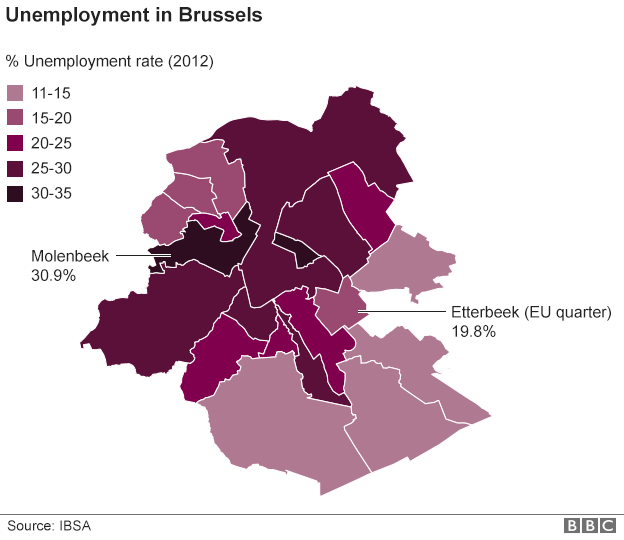
- Published11 February 2015
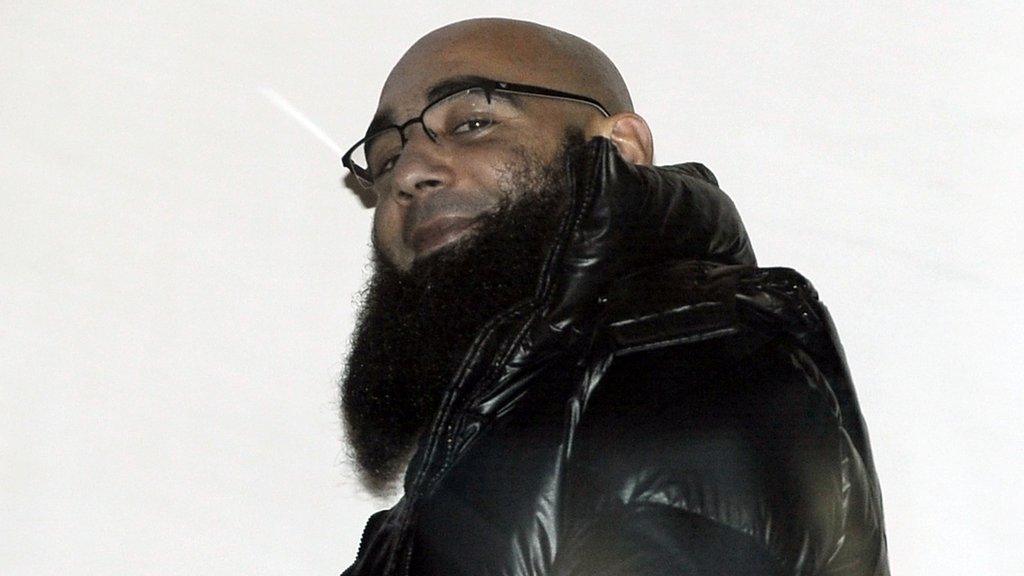
- Published16 January 2015
